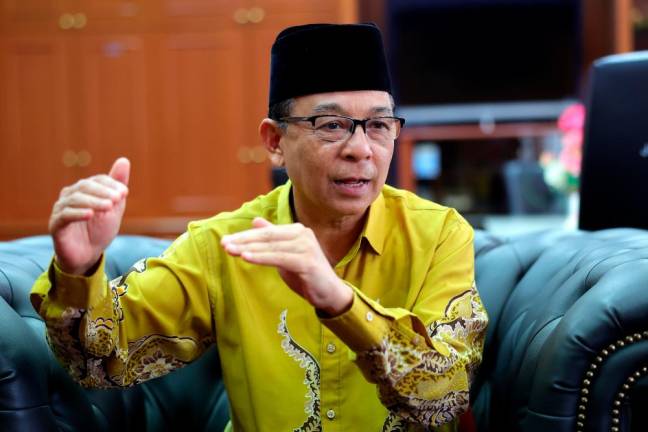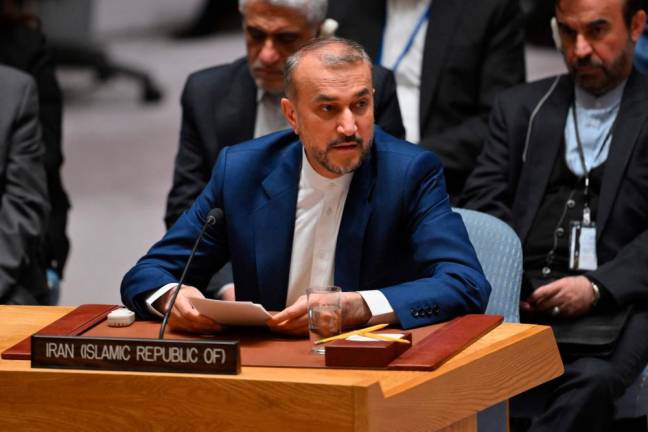AS the Covid-19 crisis is said to have been induced exogenously, the effect of the pandemic on Islamic financial institutions is regarded as comparable to that of conventional banks, due to the similarity of the business model.
Nevertheless, it is understood that Shariah-compliant equities are said to be performing remarkably well in contrast to conventional counterparts. Generally, the crisis will bring about challenges when it comes to liquidity, resilience as well as capital for the banking sector, and these are all significant components of the financial industry.
To address such a crisis, the Malaysian central bank has initiated various measures for liquidity as a means of supporting the banking sector, and this consists of efforts like the lowering of reserve requirements, initiating Sukuk buying programmes, lowering regulatory capital buffer as well as making available a large amount of central bank credit lines. Such measures tend to have significant positive effects on the Islamic and conventional banking systems, but some of these measures encounter various legal impediments.
There is obviously a need to enhance sustainability of the financial system using additional means, such as implementing policies and principles contained within the framework of Islamic finance.
Some researchers have emphasised that financial system sustainability can be achieved post Covid-19 but it will require the implementation of sound financial principles and practices, and it is believed that Islamic finance would be capable of providing what is needed to aid the recovery process.
Obviously, what is needed is the implementation of various principles and practices within the realm of finance that are capable of bringing about better sustainability through the practice of better financial ethics among institutions.
Islamic micro-finance can act as a developmental institution that can fund better sustainability and ensure better balance between bottomlines or selecting the correct learning models that are available. Many believe that the features and characteristics of Islamic finance will be instrumental in facilitating the recovery among financial institutions as a result of the pandemic in the future.
Islamic micro-finance institutions are capable of attaining financial sustainability by creating an income from the activities that allow them to satisfy their various operational and financial expenses without obtaining external finances via grants or even donations.
In essence, Islamic micro-finance institutions exhibit a high level of financial innovations and these result in greater financial sustainability. Islamic financial markets are regarded as markets that are still quite young and in the state of growth. Such growth would result in many competitors coming about and trying to compete in order to get a portion of the market share.
According to statistical analysis, the market for Islamic finance products grew by almost US$2.5 trillion (RM10.54 trillion) in 2018, and this exhibits an increase in contrast to the years before. However, the growth of Islamic finance in Malaysia and across the world has slowed down over the past few years due to the slowdown in the leading countries that are labelled as proponents of Islamic finance, and these include Malaysia, Saudi Arabia and Iran. All these countries combined make a contribution of more than 60% of the total Islamic financial assets in the world. The slowdown is the result of a reduction in crude prices, together with various other economic-based factors.
Islamic finance does have a significantly large market share within what is known as the Other Islamic Financial Institutions (OIFI). The value of assets of OIFI has grown to almost US$150 billion in 2018, and OIFI essentially includes institutions such as microfinance, small- and medium-sized enterprises (SME) and also investment firms.
All these institutions are some of the most badly hit by the Covid-19 pandemic. A significant decline in crude oil prices is also a significant challenge for economies across the world, and their forecast suggests a further drop of more than 10% in the future.
Government action in the form of relief provided and moratoriums placed on payment of loans has resulted in many banks in Malaysia experiencing a drop in cash flow and also facing liquidity problems.
Financial institutions worldwide, including banks in Malaysia, have to be prepared for low profitability for long periods due to the pandemic, and what is required is an intervention in the form of a new method of finance that is perceived as being based on more ethical and just principles, which is Islamic finance.
The pandemic has brought greater instability to the financial situation of various countries across the world. In practical terms, it has resulted in economic shocks due to various measures implemented by governments as a means of containing the spread of the Covid-19 pandemic. These measures have resulted in various economic sectors in countries like Malaysia being significantly crippled and hampered, creating numerous problems that has affected its economy as well as its financial system.
Many organisations within numerous industries across Malaysia were forced to close down and were unable to sustain their business operations. Certain analysts pointed out that the vulnerability of a financial system does have a role in helping countries overcome and withstand great financial and economic shocks due to problems like these brought about by the pandemic.
A number of researchers and Islamic scholars have claimed that conventional Western-based financial principles may contribute to the worsening of the financial and economic performance of a country, and that many of the principles connected to such financial systems are unable to assist the financial systems to withstand such economic problems and also to become efficient again post-Covid 19.
Certain scholars have stressed that the nature of a financial system has a lot to do with the ability of a country to withstand economic shocks like this and to overcome it, and come out stronger. They pointed out that the principles connected with Islamic finance have a means of helping countries to overcome these sort of economic problems, and this is due to its various characteristics, features and principles that can help financial systems as well as economies to ensure sustainability post Covid-19.
Dr Akram Al-Khaled, Senior Lecturer/Head of MBA Programme, Faculty of Business BERJAYA University College. Comments: letters@thesundaily.com












